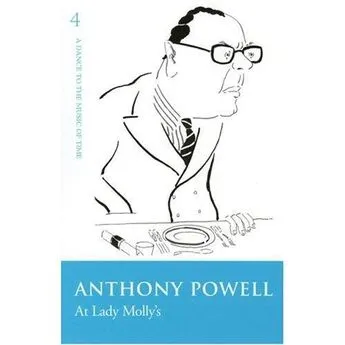Anthony Powell - A Buyers Market
- Название:A Buyers Market
- Автор:
- Жанр:
- Издательство:Arrow
- Год:2005
- ISBN:нет данных
- Рейтинг:
- Избранное:Добавить в избранное
-
Отзывы:
-
Ваша оценка:
Anthony Powell - A Buyers Market краткое содержание
Anthony Powell's universally acclaimed epic A Dance to the Music of Time offers a matchless panorama of twentieth-century London. Now, for the first time in decades, readers in the United States can read the books of Dance as they were originally published-as twelve individual novels-but with a twenty-first-century twist: they're available only as e-books. The second volume, A Buyer's Market (1952), finds young Nick Jenkins struggling to establish himself in London. Amid the fever of the 1920s, he attends formal dinners and wild parties; makes his first tentative forays into the worlds of art, culture, and bohemian life; and suffers his first disappointments in love. Old friends come and go, but the paths they once shared are rapidly diverging: Stringham is settling into a life of debauchery and drink, Templer is plunging into the world of business, and Widmerpool, though still a figure of out-of-place grotesquerie, remains unbowed, confident in his own importance and eventual success. A Buyer's Market is a striking portrait of the pleasures and anxieties of early adulthood, set against a backdrop of London life and culture at one of its most effervescent moments.
A Buyers Market - читать онлайн бесплатно полную версию (весь текст целиком)
Интервал:
Закладка:
“He was an odd man in many ways.”
“Kenneth so rarely brings the friends of his school days here.”
I said that we had also stayed together with the same French family in Touraine; for, if I had to be regarded as a close friend of her son’s, it was at La Grenadière that I had come to know him best, rather than at school, where he had always seemed a figure almost too grotesque to take seriously.
“At the Leroys’?” she asked, as if amazed at the brilliance of my parents in having hit on the only possible household in the whole of France.
“For six weeks or so.”
She turned to Widmerpool.
“But you never told me that,” she said. “That was naughty of you!”
“Why should I?” said Widmerpool. “You didn’t know him.”
Mrs. Widmerpool clicked her tongue against the roof of her mouth. Her large features distinctly recalled the lineaments of her son, though she had perhaps been good looking when younger. Even now she seemed no more than in her late forties, though I believe she was, in fact, older than that. However, her well-preserved appearance was in striking contrast with Widmerpool’s own somewhat decaying youth, so that the pair of them appeared almost more like contemporaries, even husband and wife, rather than mother and son. Her eyes were brighter than his, and she rolled them, expanding the pupils, in comment to any remark that might be thought at all out of the ordinary. Her double row of firm teeth were set between cheeks of brownish red, which made her a little resemble Miss Walpole-Wilson, with whom she clearly possessed something discernibly in common that explained their friendly connection. She seemed a person of determination, from whom no doubt her son derived much of his tenacity of purpose. The garment to which he referred was of flowered velvet, with a fringe, and combined many colours in its pattern.
“I hear you know the Gorings,” she said. “It seems such a pity they have allowed Barbara to run so wild. She used to be such a dear little girl. There really appears to be something a trifle queer about Lord Aberavon’s grandchildren.”
“Oh, shut up, Mother,” said Widmerpool, changing his almost amatory manner unexpectedly. “You don’t know anything about it.”
He must have felt, not entirely without reason, that his mother was on delicate ground in bringing up so early, and in such a critical spirit, the subject of Gorings and Walpole-Wilsons. Mrs. Widmerpool seemed not at all put out by the brusque form of address used by her son, continuing to express herself freely on the characteristics, in her eyes, good, bad and indifferent, of Barbara and Eleanor, adding that she understood that neither of the Goring sons were “very much of a hand at their books.” She felt perhaps that now was the time to unburden herself upon matters hardly to be pursued with the same freedom after the arrival of Miss Janet Walpole-Wilson. From her comments, I supposed that Widmerpool must have given his mother, perhaps involuntarily, some indication that the Gorings were out of favour with him; although it was impossible to guess how accurately she might be informed about her son’s former feelings for Barbara: even if she knew of them at all. It was possible that she had attributed the anxiety he had gone through with Gypsy Jones to a later aggravation of his entanglement with Barbara: in fact, the same conclusion to which I had myself first arrived, when, at Stourwater, he had spoken of the troubles that were oppressing him.
“There doesn’t seem any sign of Eleanor getting married yet,” said Mrs. Widmerpool, almost dreamily, as if she were descrying in the depths of the gas-fire a vision invisible to the rest of us, revealing the unending cavalcade of Eleanor’s potential suitors.
“Perhaps she doesn’t want to,” said Widmerpool, in a tone evidently intended to close the subject. “I expect you two will like a talk on books before the end of the evening.”
“Yes, indeed, for I hear you are in the publishing trade,” said his mother. “You know, I have always liked books and bookish people. It is one of my regrets that Kenneth is really too serious minded to enjoy reading for its own sake. :I expect you are looking forward to those articles in The Times by Thomas Hardy’s widow. I know I am.”
While I was making some temporising answer to these reassurances on Mrs. Widmerpool’s part regarding her inclination towards literature, Miss Walpole-Wilson was announced, who excused her lateness on the grounds of the chronic irregularity of the bus service from Chelsea, where her flat was situated. She was wearing a mackintosh, of which, for some reason, she had refused to divest herself in the hall; exemplifying in this manner a curious trait common to some persons of wilful nature, whose egotism seems often to make them unwilling, even incapable, of shedding anything of themselves until they can feel that they have safely reached their goal. She now removed this waterproof, folding and establishing it upon a chair — an act watched by her hostess with a fixed smile that might have signified disapproval — revealing that she, too, was wearing a richly-coloured coat. It was made of orange, black, and gold silk: a mandarin’s coat, so she explained, that Sir Gavin had given her years before.
The relationship between Mrs. Widmerpool and Miss Walpole-Wilson, in general an amicable one, gave the impression of resting not exactly upon planned alliance so much as community of interest, unavoidable from the nature of the warfare both waged against the rest of the world. Miss Walpole-Wilson was, of course, as she sometimes described herself, “a woman of wide interests,” while Mrs. Widmerpool concerned herself with little that had not some direct reference to the career of her son. At the same time there was an area of common ground where disparagement of other people brought them close together, if only on account of the ammunition with which each was able to provide the other: mutual aid that went far to explain a friendship long established.
Miss Walpole-Wilson’s manner that evening seemed intended to notify the possession of some important piece of news to be divulged at a suitable moment. She had, indeed, the same air as Widmerpool: one, that is to say, suggesting that she was unusually pleased with herself. We talked for a time, until the meal was despondently announced by the decrepit house-parlourmaid, who, a minute or two later, after we had sat down to cold food in a neighbouring room, hurried plates and dishes round the table with reckless speed, as if she feared that death — with which the day seemed still associated in my mind — would intervene to terminate her labours. There was a bottle of white wine. I asked Miss Walpole-Wilson whether she had been seeing much of Eleanor.
“Eleanor and I are going for a sea trip together,” she said. “A banana boat to Guatemala.”
“Rather wise to get her away from her family for a bit,” said Mrs. Widmerpool, making a grimace.
“Her father is full of old-fashioned ideas,” said Miss Walpole-Wilson, “and he won’t be laughed out of them.”
“Eleanor will enjoy the free life of the sea,” Mrs. Widmerpool agreed.
“Of course she will,” said Miss Walpole-Wilson; and, pausing for a brief second to give impetus to her question, added: “You have heard, I expect, about Barbara?”
It was clear from the way she spoke that she felt safe in assuming that none of us could possibly have heard already whatever her news might be. I thought, though the supposition may have been entirely mistaken, that for an instant she fixed her eyes rather malignantly on Widmerpool; and certainly there was no reason to suggest that she knew anything of his former interest in Barbara. However, if she intended to tease him, she scored a point, for at mention of the name his face at once took on a somewhat guilty expression. Mrs. Widmerpool inquired curtly what had happened. She also seemed to feel that Miss Walpole-Wilson might be trying to provoke her son.
“Barbara is engaged,” said Miss Walpole-Wilson, smiling, though without good-humour.
“Who to?” asked Widmerpool, abruptly.
“I can’t remember whether you know him,” she said. “He is a young man in the Guards. Rich, I think.”
I felt certain, immediately, that she must refer to someone I had never met. Many people can never hear of any engagement without showing envy, and no one can be quite disinterested who has been at one time an implicated party. The thought that the man would turn out to be unknown to me was, therefore, rather a relief.
“But what is the name?” said Widmerpool, insistently.
He was already nettled. There could be no doubt that Miss Walpole-Wilson was deliberately tormenting him, although I could not decide whether this was simply her usual technique in delaying the speed at which she passed on gossip with the object of making it more appetising, or because she knew, either instinctively or from specific information in her possession, that he had been concerned with Barbara. For a moment or two she smiled round the table frostily.
“He is called Pardoe,” she said, at last. “I think his other name is John.”
“Her parents must be pleased,” said Mrs. Widmerpool. “I always thought that Barbara was becoming — well — almost a problem in a small way. She got so noisy. Such a pity when that happens to a girl.”
I could see from Widmerpool’s pursed lips and glassy eyes that he was as astonished as myself. The news went some way to dispel his air of self-satisfaction, that had seemed only momentarily displaced by irritation with Miss Walpole-Wilson before this announcement. I was myself conscious of a faint sense of bitterness, rather indefinite in its application. Among the various men who had, at one time or another, caused me apprehension, just or unjust, in connection with Barbara, Pardoe had never at any moment, figured in the smallest degree. Why this immunity from my jealousy should have attached to him, I was now quite unable to understand, when, in the light of the information just imparted, I considered past incidents. Even after deciding that I was no longer in love with Barbara, I could still slightly resent her attitude towards Tompsitt; but objection — like Widmerpool’s — to her crossing the supper-room to sit with Pardoe would never have entered my mind.
In fact, Widmerpool’s instinct on the matter, if not his action, had, in one sense, been sound, so it now appeared; though it was true that his own emotions were still at that time deeply involved, a condition having a natural tendency to sharpen all perceptions in that particular direction. The manner in which jealousy operates is, indeed, curious enough, having perhaps relatively little bearing on the practical menace offered by a rival. Barnby used to describe a husband and lover known to him, who had both combined against a third — or rather fourth — party, found to be intervening. However, that situation was, of course, poles apart from the one under examination. Widmerpool now made an effort to control his voice.
“When did this happen?” he asked, speaking casually.
“I think they actually became engaged in Scotland,” said Miss Walpole-Wilson, pleased with the impression she had made. “But it has not been made public yet.”
There was a pause. Widmerpool had failed to rise above the situation. For the moment he had lost all his good-humour. I think he was cross not only at Barbara’s engagement, but also at the inability he was experiencing to conceal his own annoyance. I felt a good deal of sympathy for him in what he was going through.
“Rather a ridiculous little man,” he said, after a time. “Still, the fortune is a large one, and I have been told it is a nice house. I hope she will be very happy.”
Читать дальшеИнтервал:
Закладка:









